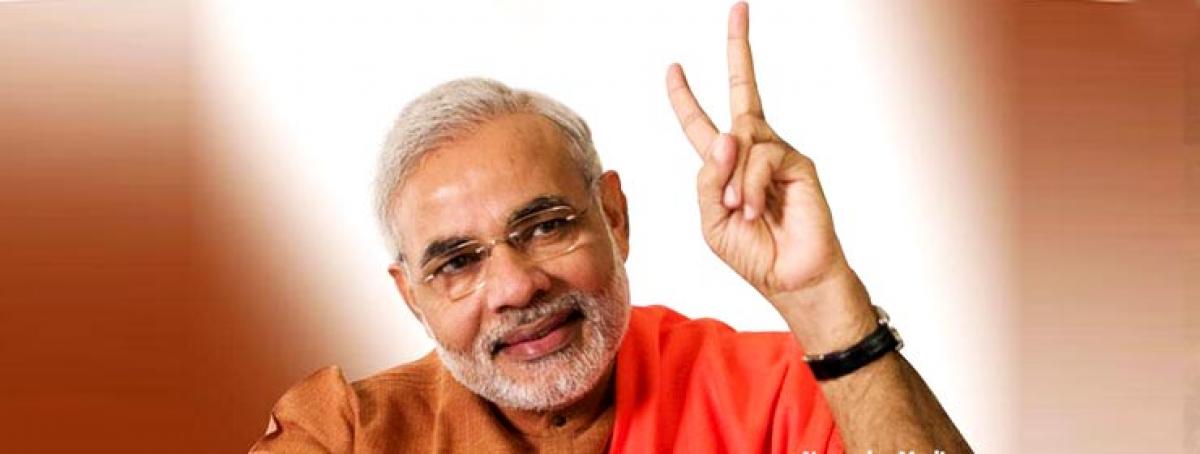Live
- Vedamrit Honey’ launched
- Arjun Das Brings Mufasa to Life in Tamil
- Odisha move to prepare maritime perspective plan
- Jal Jeevan Mission empowering women in rural areas: PM Modi
- Pradhan urges Nadda to set up pharmacy unit in Odisha
- Assembly winter session ends ahead of schedule
- Nepali Army Chief General Ashok Raj Sigdel Strengthens Ties With India In Four-Day Visit
- BRS MLAs, MLCs Skip Second Day of Orientation Classes
- Andhra Pradesh Student Dies in Tragic Car Crash in Leicestershire, 4 Others Injured
- Oppn assails delinking of Waltair div from ECoR
Just In
Cabinet approves ILO Recommendation No. 204 (R-204) concerning transition from the informal to the formal economy


The Union Cabinet under the Chairmanship of Prime Minister Shri Narendra Modi has approved the proposal for placing the new Instrument adopted by International Labour Organization
The Union Cabinet under the Chairmanship of Prime Minister Shri Narendra Modi has approved the proposal for placing the new Instrument adopted by International Labour Organization (ILO) – Recommendations concerning ‘The Transition from the Informal to the Formal Economy (No.204)’ before the Parliament.
The International Labour Conference of ILO at its 104th Session held in Geneva in June 2015 adopted the above recommendation. Its adoption was supported by India, represented at the Session by the Union Minister of State for Labour & Employment.
Under Article 19 of the ILO Constitution, each Member State of the ILO is required to submit the instruments adopted by the Conference before the competent authority (the Parliament in case of India) within a period of one year from the closing session of the Conference.
The Recommendation provides guidance to Members to facilitate the transition of workers and economic units from the informal to the formal economy while respecting workers’ fundamental rights and promote creation, preservation and sustainability of enterprises and decent jobs in the formal economy and prevent informalization of formal economy jobs.
There is no financial implication on India in adopting the ILO Recommendation, which is applicable to all workers in the country which ratifies the instrument.
Background
ILO Conventions are international treaties, open for ratification by member countries. The ratification of an ILO Convention is a voluntary process. Once ratified, the ILO Conventions create legally binding obligations on the Member countries that ratifies the particular Convention. ILO Recommendations are not open to ratification but they are meant to provide guidance to the National Governments as regards formulation and implementation of policy, legislation and practices. A Protocol is an instrument that partially modifies a Convention. As regards formal ratification of the Convention and Protocol to the Convention, the same is to be decided separately by Government keeping in view the national laws and practices.
Given the diversity of the informal economy across member States, the competent authority should identify the nature and extent of the informal economy as described in this Recommendation, and its relationship to the formal economy using Tripartite mechanisms. In designing coherent and integrated strategies to facilitate the transition to the formal economy, the Recommendation encourages members to take into account the diversity of characteristics, circumstances and needs of workers and economic units in the informal economy. It also seeks to take into account specific national circumstances, legislation, policies, practices and priorities, effective promotion and protection of the human rights and promotion of gender equality and non-discrimination.

© 2024 Hyderabad Media House Limited/The Hans India. All rights reserved. Powered by hocalwire.com






